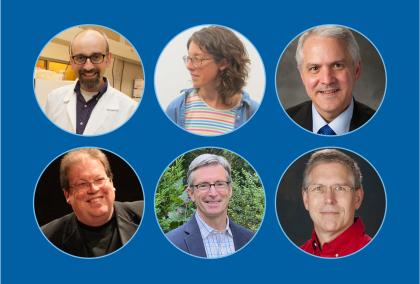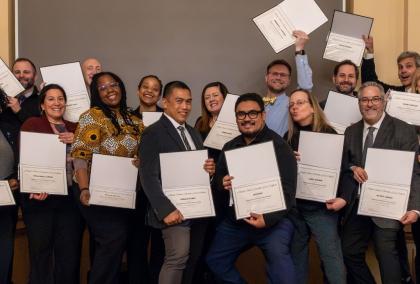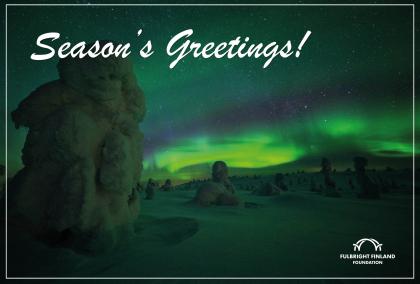To locate a suitable host/host institution in Finland, please use the tips and advice given below:
- Ask around if the members of your own professional network already have some connections to fellow scholars in Finland.
- International conferences are also good opportunities to find out about colleagues in your own field in Finland.
- See a list of universities in Finland.
- Find out in which Finnish universities the previous U.S. Fulbright grantees have spent their Fulbright periods at. For information on the previous grantees, their fields of study, project titles, and host institutions, please visit the Fulbright grantee lists. The list also includes similar information on the Finnish Fulbright grantees to the U.S. The alumni of the program are always happy to advise new candidates (e.g. Fulbright Finland Outreach Ambassadors).
- Learn about research in Finland.
- Take a look at a society or association that represents your specific discipline in Finland. They may be able to point you to the direction of a suitable Finnish institution.
Academy of Finland
In Finland, there are several Centers of Excellence in Research nominated by the Reseach Council of Finland. These centers represent the top research fields and environments in Finnish science. You can read more about the Centers of Excellence on the Research Council of Finland's website.
The Research Council of Finland also funds special research programs called Academy Programs. They are science-driven, thematic and target-oriented bodies of research projects that are aimed at supporting scientific regeneration and increasing scientific and societal impact.
You may also find interesting the research projects funded by the Strategic Research Council, which combine high quality science with great societal impact. These projects seek concrete solutions to grand challenges that require multidisciplinary approaches in close collaboration with various stakeholders.
Higher Education Institutions in Finland
There are two types of higher education institutions in Finland: universities and universities of applied sciences (UAS). Universities, which are academic or artistic institutions, focus on research and education based on research. They confer Bachelor's, Master's, Licentiate, and Doctoral degrees.
The universities of applied sciences offer work-related education in response to labor market needs. UAS' confer Bachelor's and Master's degrees.
The Finnish universities provide over 400 bachelor's and master’s degree programs with teaching in English. There are several doctoral study and research options in English as well.
How to Approach a Potential Host?
In terms of connecting with a potential host, here are a few tips that may be helpful:
It is ok to ‘cold call’. You don’t need to have a pre-existing relationship with an academic in Finland in order to secure a host. If you already know someone with whom you want to work, that obviously makes the process a bit simpler, but if you don’t, it’s not a problem. The key is to find someone whose work is compatible with your research interests.
- Be prepared and clear about expectations. When you contact a prospective host, you need to be as clear as possible about your research aims (this will help to ensure a good fit). The key is to try to articulate these expectations and aims as clearly as possible to ensure a good fit.
- Provide your prospective host with resources if needed. There are resources that describe the role and expectations of the host on the Fulbright Finland website. These may be helpful in answering prospective hosts’ questions if they arise.
Maximizing Your Host Relationship
Once you have secured a host and been selected for a Fulbright Scholarship, the really important work begins! Here are a few tips — some apply to the time before you arrive in Finland while others are relevant to your grant period.
- Begin communicating with your host early and often so that your goals and plans are clear for the both of you, and so you will be able to hit the ground running when you arrive. The key at this stage is to not make any assumptions.
- Continue the conversation upon arrival. The key to making the most of your grant period and to maintaining a productive relationship with your host will be to communicate clearly about expectations.
- Be active, ask questions, and take initiative yourself!


